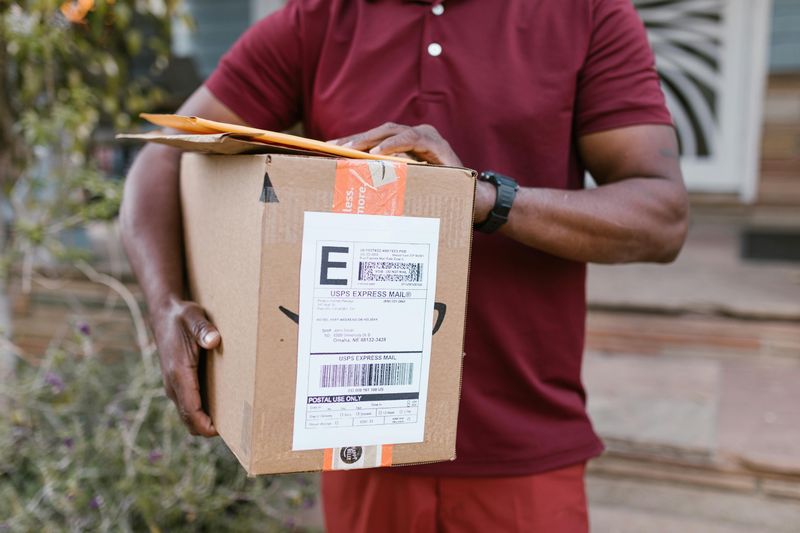The 17 Online Scams That Specifically Targeting Older Adults in the US (And How to Avoid Them)

The internet is an amazing tool for staying connected, shopping, and managing money—but it’s also a playground for scammers who target older adults.
If you’ve ever received a suspicious email, an odd phone call, or a surprise “urgent” text, you’re not alone. The trick is knowing which schemes are common and how to shut them down fast. Read on for 17 online scams that frequently target older Americans—and the simple steps to outsmart them every time.
1. Tech Support Scams

Nothing derails a peaceful afternoon like a pop-up screaming that your computer is infected. Scammers often impersonate well-known tech brands, warning of urgent threats and demanding remote access to “fix” your system. Once inside, they may install malware, lock you out, or demand payment for bogus repairs. The emotional pressure and technical jargon can be disorienting, making it easier to comply.
Here’s the truth: legitimate companies don’t cold-call you about computer problems. If you see a scary pop-up, close the browser or shut down the device. Never call the number listed. Use a trusted local technician or the official support page for your device.
How to avoid it: keep software updated, use reputable security tools, and block unsolicited remote access. If you paid, contact your bank, report the incident, and change passwords immediately.
2. Phishing Emails From Banks or the IRS

Few messages spark panic like one claiming your bank account is locked or the IRS needs immediate action. Phishing emails and texts copy logos, colors, and tone from real institutions to trick you into clicking a link or sharing information. The link often leads to a lookalike website designed to capture logins, Social Security numbers, or card details. Some even attach malware.
Real banks and the IRS don’t ask for sensitive data by email or text. Instead of clicking, visit the institution’s official website by typing the address directly or using a saved bookmark. You can also call the number on your card.
Protect yourself by enabling two-factor authentication, using unique passwords, and scrutinizing sender addresses. If you’re unsure, forward suspicious IRS emails to [email protected] and bank emails to their fraud department.
3. Grandparent Scams

A late-night phone call and a voice in distress—“Grandma, it’s me!”—can jolt anyone into action. Scammers pose as grandchildren or law enforcement, claiming an urgent crisis: bail money, hospital bills, or travel emergencies. They pressure you to keep it secret and pay quickly using gift cards, wire transfers, or crypto. The rush and emotional manipulation are intentional.
Pause and verify. Ask personal questions only your grandchild would know or hang up and call them or another family member directly. Remember that legitimate agencies won’t demand secrecy or payment via gift cards.
Prevention tips: set family code words, refuse urgent payment requests, and turn on call screening. If targeted, report to the FTC and your state attorney general. Keep receipts and screenshots; they may help investigations and recovery attempts.
4. Medicare & Health Insurance Scams

Healthcare confusion is fertile ground for fraudsters. Unsolicited calls or emails may request your Medicare number, promise “free” equipment, or offer a new plan requiring immediate confirmation. Once they have your information, scammers can bill fake services or steal your identity. Worse, the pressure to decide quickly can feel legitimate when health is on the line.
Medicare will not call unexpectedly and ask for your number or payment. Hang up and contact Medicare directly using the number on your card or visit the official website. Never share your Medicare or insurance details with unsolicited callers.
To stay safe, review Explanation of Benefits statements for charges you don’t recognize, set up online accounts securely, and freeze your credit if needed. Report suspicious activity to Medicare at 1-800-MEDICARE and your plan provider immediately.
5. Romance Scams

Loneliness is a powerful vulnerability scammers exploit with practiced charm. They create attractive profiles, share intimate stories, and move the conversation off-platform quickly. Soon comes a crisis—medical bills, travel delays, customs fees—paired with urgent requests for money or gift cards. The fraudster may refuse video calls or use grainy images and odd excuses.
Healthy relationships don’t hinge on secret payments. Reverse image search profile photos, schedule a video chat, and talk to trusted friends before sending money. If love comes with pressure and excuses, treat it as a warning sign.
Protect yourself by keeping finances private, locking down social media, and reporting fake profiles to the platform and the FTC. If you’ve sent money, contact your bank immediately. You deserve genuine connection without manipulation or financial harm.
6. “You Won a Prize!” Lottery or Sweepstakes Scams

What a thrill to hear you’ve won big—until the “prize” demands payment first. Scammers announce winnings via email, text, or social media, then ask for taxes, processing fees, or customs charges. They may send fake checks that bounce after you deposit and transfer funds. The longer you engage, the more fees they invent.
Legitimate prizes don’t require upfront payment and won’t pressure secrecy. Hang up, delete the message, and don’t click links. Verify contests through official websites and avoid sharing personal details.
Safeguards: refuse gift card or wire transfer requests, enable spam filters, and distrust overnight deadlines. If you’ve deposited a suspicious check, call your bank immediately. Report lottery scams to the FTC and state lottery authorities. Winning should feel exciting—not expensive or stressful.
7. Online Shopping Scams

That unbeatable deal on a must-have item can be bait for a bogus store. Fraudsters build slick websites, copy real brand images, and advertise on social media with deep discounts. After you pay, the item never ships—or a cheap counterfeit arrives. Meanwhile, your card number may be harvested for more theft.
Before buying, check domain age, contact details, and return policies. Look for typos, generic product descriptions, and missing privacy pages. Search for reviews outside the site and avoid sellers that only accept gift cards or crypto.
Use credit cards with strong dispute rights, enable purchase alerts, and consider virtual card numbers for new merchants. If scammed, file a chargeback and report the site to the platform host. Remember: if the price feels magical, it might be imaginary.
8. Fake Charity Requests

Compassion is a beautiful trait, which is why scammers exploit it after disasters or emotional headlines. They craft heartfelt messages, use stolen logos, and post convincing photos to solicit donations. Money sent through quick methods—gift cards, wire transfers, crypto—vanishes with no receipt or impact. Even small donations can expose your data for future scams.
Give smarter by verifying charities through Charity Navigator, Candid/GuideStar, or the IRS Tax Exempt Organization Search. Donate directly on the official website, not through links in unsolicited messages. Ask for written information and avoid pressure to give immediately.
Protect yourself by using credit cards, keeping receipts, and unsubscribing from suspicious campaigns. If you donated to a fake charity, contact your bank and file reports with the FTC and state regulators. Real generosity deserves real results.
9. Social Security Benefit Scams

Threatening messages about your Social Security number being suspended are engineered to panic. Scammers pose as SSA agents, demanding “verification” or immediate payment to avoid arrest or benefit loss. They might spoof caller IDs and reference case numbers to sound official. The endgame is your personal data and money.
The Social Security Administration does not suspend numbers or demand payment via gift cards, wire, or crypto. Hang up, don’t press any keypad options, and contact SSA directly using their official website or phone number.
For defense, create a my Social Security account, freeze credit if appropriate, and enable identity monitoring. Report attempts to the SSA Office of the Inspector General. Keep calm, confirm through trusted channels, and never let urgency override your instincts.
10. Investment & Retirement Scams

Promises of guaranteed high returns sound like music to any saver’s ears. Scammers pitch secret strategies, unregistered products, or exclusive deals targeting retirees’ nest eggs. They use slick websites, testimonials, and pressure to decide quickly. Once funds move, recovery is hard—especially with offshore accounts.
Protect your savings by checking an advisor’s credentials on FINRA BrokerCheck and the SEC’s Investment Adviser Public Disclosure. Be wary of complex products you don’t understand, especially those with no clear risk disclosures. Real investments involve risk, transparency, and time to decide.
Diversify, verify paperwork, and never transfer retirement funds because of fear or FOMO. If something feels off, consult a trusted, independent professional. Report suspected fraud to the SEC and your state securities regulator. Your retirement deserves rigor, not rush.
11. Fake Job Offers / Work-From-Home Scams

Flexible work from home can be a lifeline, which is why scammers dangle it like bait. They offer easy money, instant hiring, and “training kits” that require upfront payment. Some send checks for equipment purchases that later bounce, trapping you with bank fees. Others harvest personal details for identity theft.
Real employers don’t ask for money to get hired. Verify companies on LinkedIn, the BBB, and state business registries. Use official career sites, and watch for interviews conducted only by text or messaging apps.
Protect yourself by refusing to cash checks for strangers, using separate email addresses for job searches, and freezing credit when uncertain. If you’ve shared sensitive data, monitor accounts and file an identity theft report. Good jobs pay you—they don’t bill you.
12. Online Auction or Marketplace Scams

Buying or selling online should be convenient, but scammers exploit trust with fake payment confirmations, overpayment schemes, and counterfeit goods. As a seller, you might receive a “buyer” who sends too much and asks you to refund the difference—which disappears once the original payment bounces. As a buyer, you might get a broken item, a different model, or nothing at all.
Insist on platform-approved payment systems and never ship before the payment clears. Meet locally in safe exchange zones when possible and document everything. Keep conversations within the platform for dispute protection.
Check seller ratings, examine photos, and beware of urgent requests to move off-site. If scammed, file a claim with the marketplace and your bank. It’s okay to walk away from deals that feel rushed or unusually complicated.
13. Subscription Renewal Scams

Inbox alarms about expiring antivirus, cable, or streaming services often aren’t real. Scammers send invoices or renewal notices with links to spoofed payment pages. Calling the listed number connects you to a “support” agent who pressures immediate payment or remote access. The goal is to capture card details or take over your device.
Verify renewals by signing into your account directly, not via email links. Check your billing history and saved payment methods. If you don’t recognize the subscription, don’t pay—legitimate companies provide clear account records.
Use a password manager, enable two-factor authentication, and set calendar reminders for actual renewals. Report phishing emails to your provider and mark them as spam. Slow down, confirm through official channels, and never authorize remote access for billing questions.
14. Remote Access Scams

Convincing callers or pop-ups may urge you to install remote software to “diagnose” problems. Once connected, scammers rummage through files, plant malware, and open banking pages to induce payment. They might even create fake system errors to justify fees. The intrusion can be deeply unsettling and costly.
Legitimate support won’t demand remote control out of the blue. If someone insists, end the session immediately and disconnect from the internet. Run a reputable security scan and change passwords from a clean device.
Prevent trouble by disabling unsolicited remote tools, using built-in OS protections, and reserving remote access for trusted, pre-scheduled help. If you paid or disclosed information, contact your bank and enable account alerts. Document everything and report the incident to the FTC and local authorities.
15. Fake Utility Company Threats

Messages claiming your electricity or gas will be cut off today are designed to frighten you into paying. Scammers spoof utility phone numbers and send urgent texts demanding immediate settlement via gift cards, wire, or peer-to-peer apps. They might quote account numbers or addresses gleaned from public records to sound convincing. The pressure is the tell.
Real utilities provide written notices and multiple payment options—not threats. Hang up and call the number on your bill or the utility’s official website. Check your account status online rather than trusting inbound calls.
To stay safe, set up online accounts with alerts, enroll in autopay if preferred, and keep copies of bills. Report impersonation attempts to your utility’s fraud department and the FTC. Power plays don’t deserve your power or your money.
16. Delivery & Shipping Scams

Package fever makes us click fast on “missed delivery” texts or emails. Scammers mimic USPS, UPS, or FedEx branding and link to pages asking for small “redelivery fees” or login credentials. Entering details can expose your card and personal information. Sometimes the link installs malware on your device.
Don’t click the link. Instead, go directly to the carrier’s website or app and enter your tracking number. Official carriers don’t request payment for basic redelivery via text messages.
Enable carrier notifications through official apps, use password managers, and scrutinize shortened URLs. If you submitted data, cancel cards and change passwords immediately. Report phishing domains to the carrier and the FTC. Your doorstep surprises should be joyful—not financially draining.
17. Crypto & Digital Wallet Scams

Cutting-edge tech can feel confusing, and scammers love that fog. They pitch “risk-free” crypto investments, promise guaranteed returns, or pressure payment in bitcoin or gift cards. Some direct victims to fake wallet apps or QR codes that drain funds instantly. Once crypto moves, reversing it is nearly impossible.
If you don’t understand it, don’t invest—especially under pressure. Verify companies with FINRA and the SEC, and use only reputable exchanges with strong security. Never share wallet seed phrases or private keys, ever.
Turn on hardware-based two-factor authentication, keep wallets offline when possible, and avoid scanning random QR codes. If coerced into crypto payment, contact law enforcement and your exchange immediately. Education and skepticism are your best shields in the digital gold rush.

Comments
Loading…